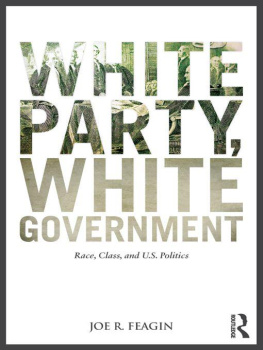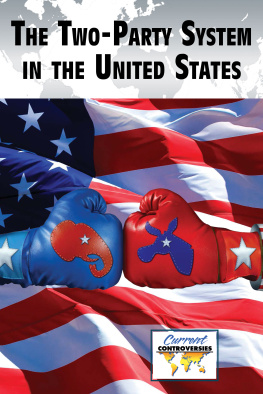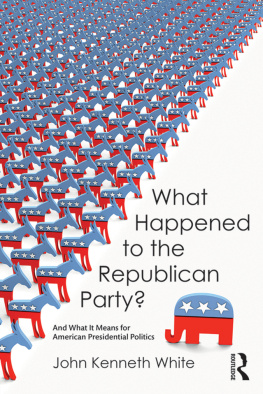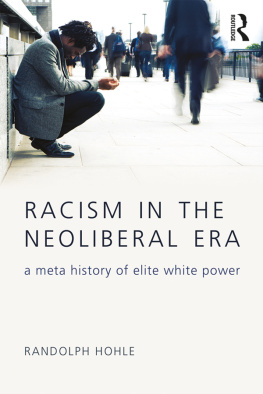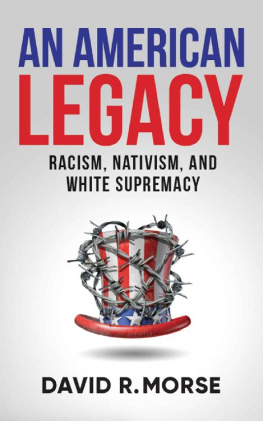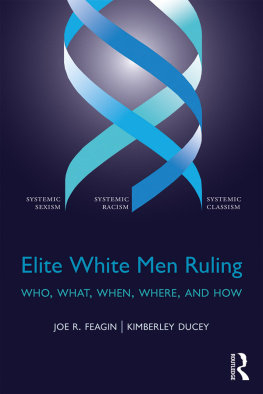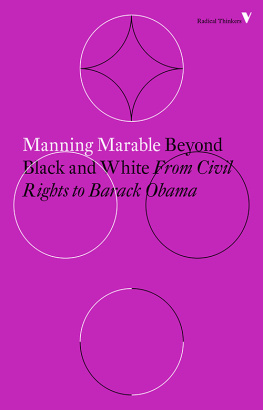White Party, White Government
White Party, White Government examines the centuries-old impact of systemic racism on the U.S. political system. The text assesses the development by elite and other whites of a racialized capitalistic system, grounded early in slavery and land theft, and its intertwining with a distinctive political system whose fundamentals were laid down in the founding decades. From these years through the Civil War and Reconstruction, to the 1920s, the 1930s Roosevelt era, the 1960s Johnson era, through to the Ronald Reagan, George H. W. Bush, Bill Clinton, George W. Bush, and Barack Obama presidencies, Feagin explores the effects of racial and class realities and the ongoing demographic changes on the present and future of the U.S. political system.
Joe R. Feagin is Ella C. McFadden Professor at Texas A&M University. He has done research on racism and sexism issues for 46 years and has served as the Scholar-in-Residence at the U.S. Commission on Civil Rights. He has written 58 scholarly books and nearly 200 scholarly articles in his research areas, and one of his books ( Ghetto Revolts ) was nominated for a Pulitzer Prize. His recent books include Systemic Racism (Routledge 2006), The White Racial Frame (Routledge 2010), and Racist America (2nd edition, Routledge 2010). He is the 2006 recipient of a Harvard Alumni Association lifetime achievement award and was the 19992000 president of the American Sociological Association.
White Party,
White Government
Race, Class, and U.S. Politics
Joe R. Feagin
First published 2012
by Routledge
711 Third Avenue, New York, NY 10017
Simultaneously published in the UK
by Routledge
2 Park Square, Milton Park, Abingdon, Oxon OX14 4RN
Routledge is an imprint of the Taylor & Francis Group, an informa business
2012 Taylor & Francis
The right of Joe R. Feagin to be identified as author of this work has been asserted by him in accordance with sections 77 and 78 of the Copyright, Designs and Patents Act 1988.
All rights reserved. No part of this book may be reprinted or reproduced or utilised in any form or by any electronic, mechanical, or other means, now known or hereafter invented, including photocopying and recording, or in any information storage or retrieval system, without permission in writing from the publishers.
Trademark notice: Product or corporate names may be trademarks or registered trademarks, and are used only for identification and explanation without intent to infringe.
Library of Congress Cataloging in Publication Data
Feagin, Joe R.
White party, white government : race, class, and U.S. politics/ Joe R. Feagin.
p. cm.
1. Political partiesUnited StatesHistory. 2. Republican Party
(U.S. : 1854 )History. 3. Democratic Party (U.S.)History. 4. United
StatesRace relationsHistory. 5. RacismUnited StatesHistory. I. Title.
JK2265.F35 2012
324.273089dc23
2011041470
ISBN: 978-0-415-88982-7 (hbk)
ISBN: 978-0-415-88983-4 (pbk)
ISBN: 978-0-203-12243-3 (ebk)
Contents
Preface
During the watershed 2008 presidential campaign, the Democratic National Committee chair, Dr. Howard Dean, commented that If you look at folks of color, even women, theyre more successful in the Democratic party than they are in the white, uh, excuse me, in, uh, Republican party. The Republican (John McCain) campaign pounced on this revealing political comment, calling it wrong and insulting. Yet Dean was just saying out loud what most politicians and other Americans were well aware ofthat the contemporary Republican Party has to a substantial degree become the white party of the United States.
Clear too in the negative media reactions to Deans comment was the fact that in this theoretically democratic country, the data on the racial polarization of the major political parties are too seldom analyzed. Indeed, a major underlying issue in recent elections has been when and how the United States can become a true multiracial democracy. This will continue to be an issue in the 2012 election and probably in many elections beyond. As the chapters that follow will demonstrate, in recent political campaigns and in much of national politics, the Republican Party has continued to be the white party, the one most consistently or aggressively representing white interests, albeit often in disguised and euphemistic language. In contrast, as Dean suggested, and as we will also see later in this book, the contemporary Democratic Party is the political party that more often represents a greater diversity of the people and perspectives in the United States. Still, this distinctive Democratic Party diversity is a relatively recent phenomenon, for that party too was once the well-known white party of the United States.
Considering this bit of contemporary racial politics helps to set the stage for the many significant racial and political issues raised in this book. Here I examine in detail the relationship of the societys foundational and systemic racism to numerous important aspects of the U.S. political system, and especially to its political parties. The racial aspects of U.S. parties and politics have often been examined, but not in the depth they deserve to be. One major recent book on political scientists efforts to deal with race and politics accents the fact that most of this research examines race as a variable in survey analysis and proceeds as if in a historical, contextual and institutional vacuum, devoid of either a causal, constitutive or discursive narrative about racial politics or racialized development. In other social sciences, as well as in much humanities and journalistic analysis, similar research limitations can also be observed.
Examining U.S. politics and systemic racism means going well beyond examining a few modest political flaws, contemporary rightward shifts in party politics, or eccentric racist candidates, issues often considered in other political assessments. An accurate understanding requires going back deeply into U.S. political, economic, and social history to examine the central and ongoing social structural and institutional realities relevant to these issues. Too much past and present analysis of racial matters in North America has accented just racial attitudes or racial ideologies, and given too little attention to other important dimensions such as the concrete material realities of this systemic oppression.
Thus, in this book I use the term systemic racism to mean the deeply rooted, institutionalized structures of white-created racial oppression of people of color. White-on-black oppression and other white-on-nonwhite oppression have been central to this society now for four centuries. As we will discover repeatedly in the chapters that follow, systemic racism involves:
1. a complex array of oppressive racial practices;
2. the unjustly gained privileges and power of white Americans;
3. the substantial and well-institutionalized resource inequalities along racial lines; and
4. a vigorous and extensive white racial frame created to maintain and rationalize white privileges and power.
Our Mythological Origins Narrative
Today in the United States, numerous political problems are blamed on ordinary Americans. The latter are commonly blamed for not turning out in high numbers for various elections, for being ignorant of U.S. political institutions and history, for being easily swayed by mainstream media, and for being poorly informed on numerous public policy issues. But such ordinary-people blaming is too easy, for many contemporary political problems have their roots deeply in fundamentally undemocratic political institutions that were created by our elite white male founders and which have, for the most part at the top, been maintained today as such by elite white men and their acolytes. Given the fundamentally flawed character of our major political and other social institutions, the often weak political commitments and inept political decisions of many ordinary Americans are not at all surprising.

